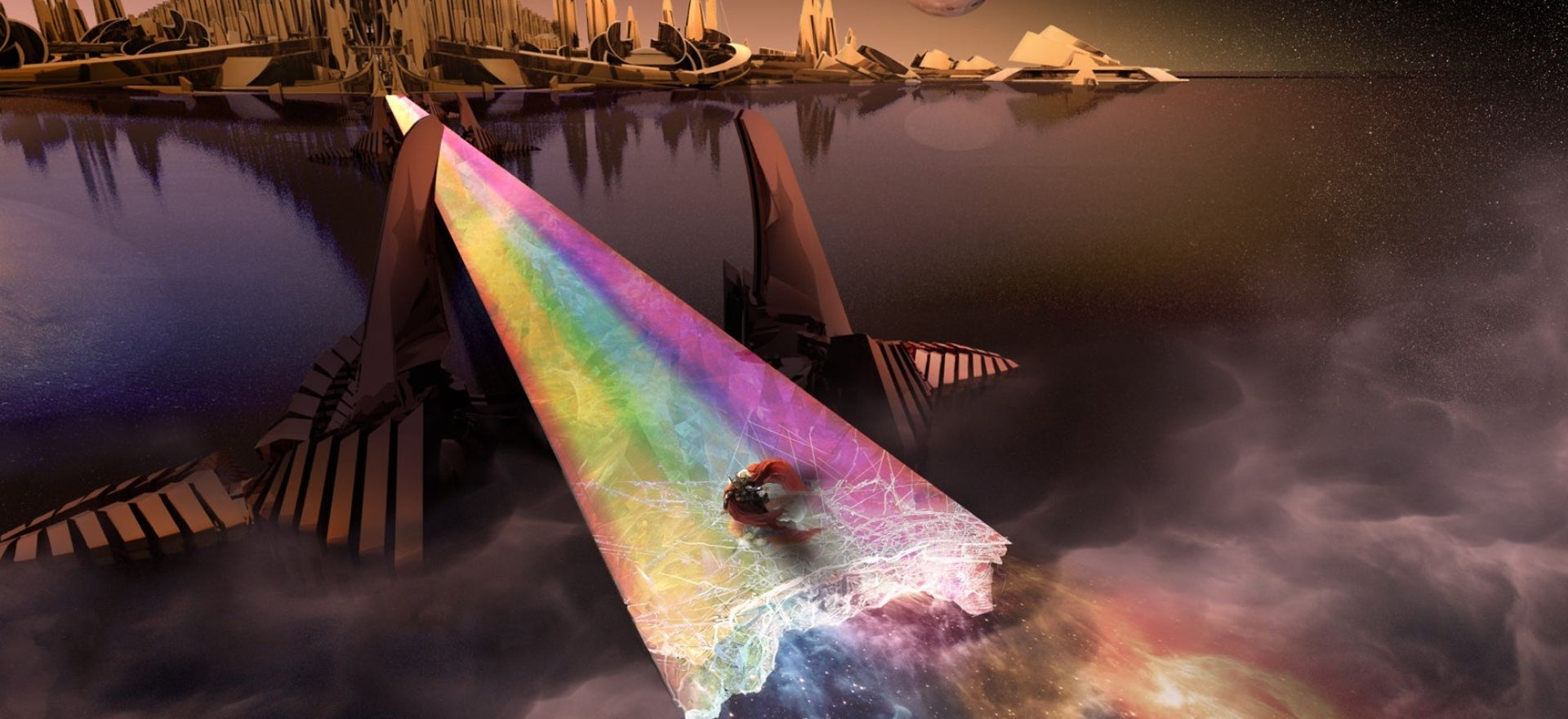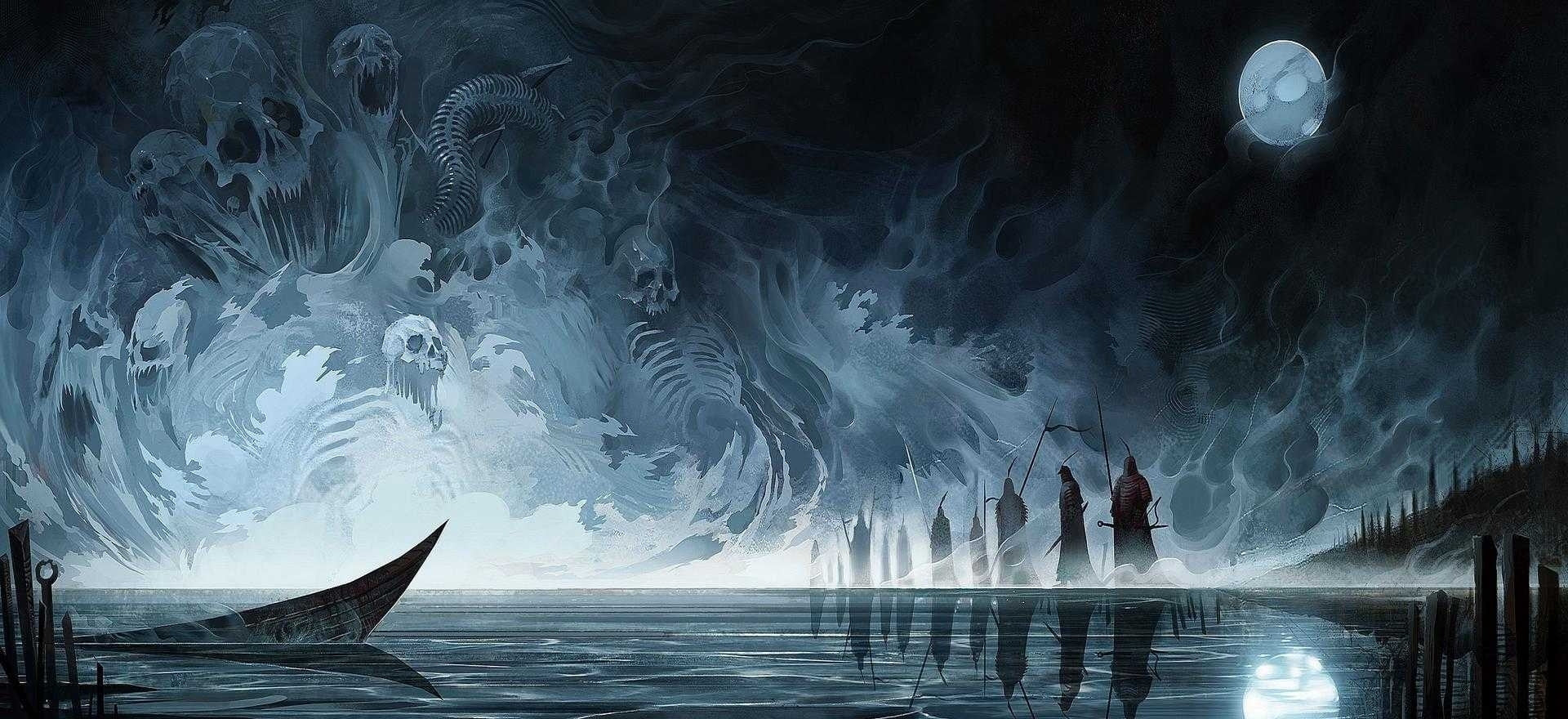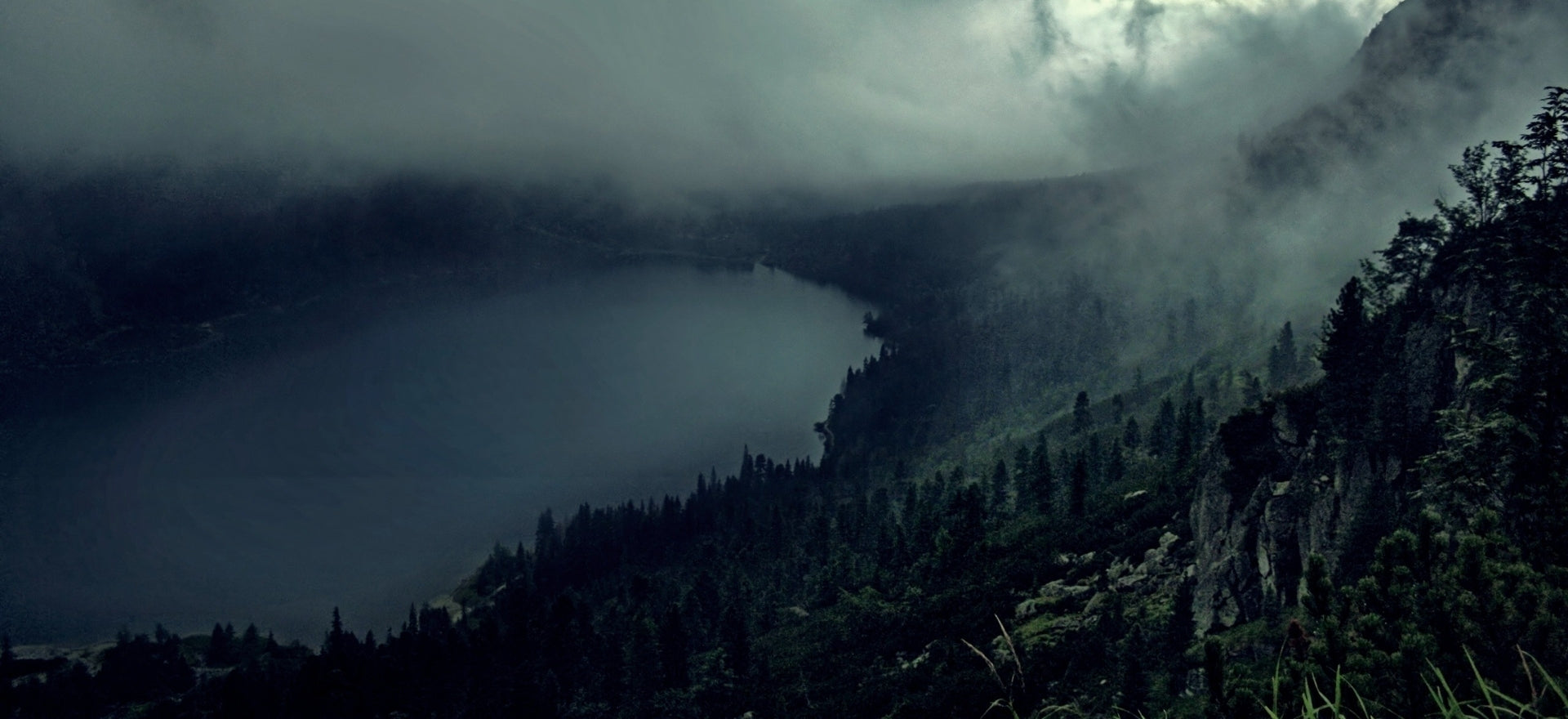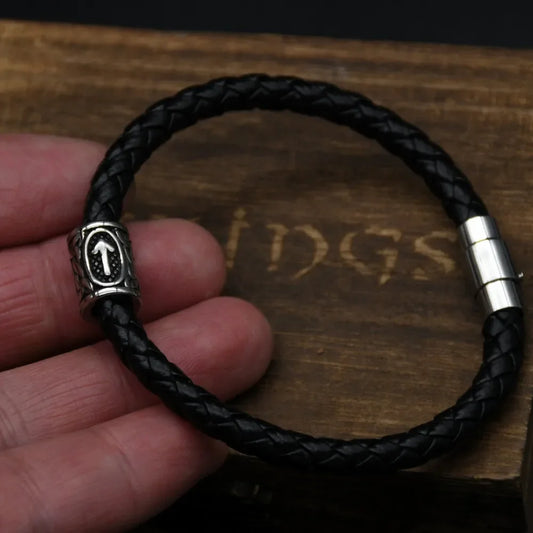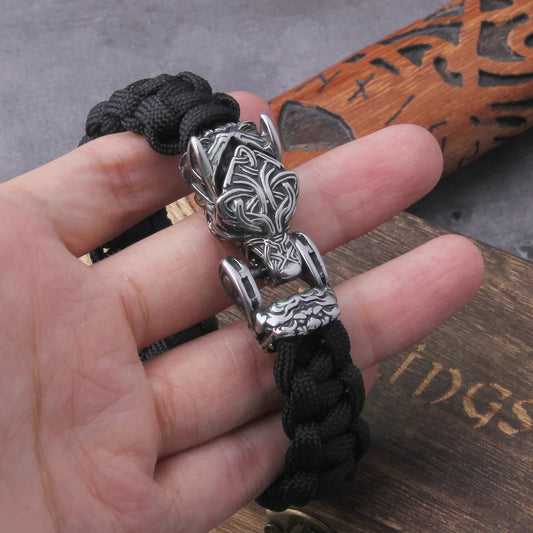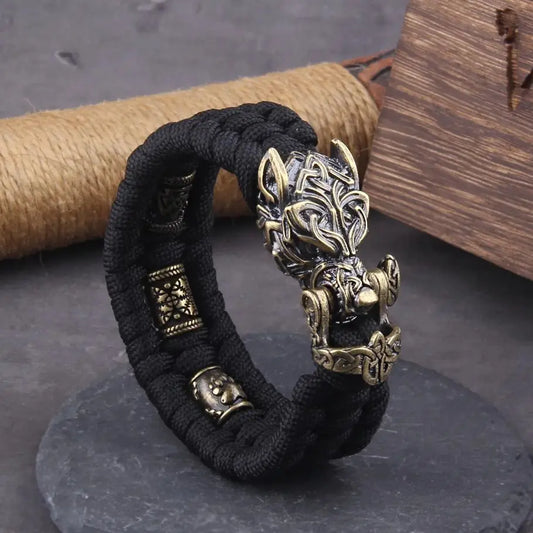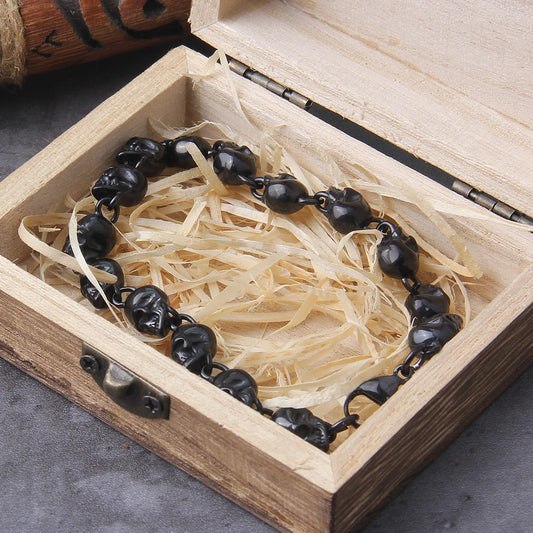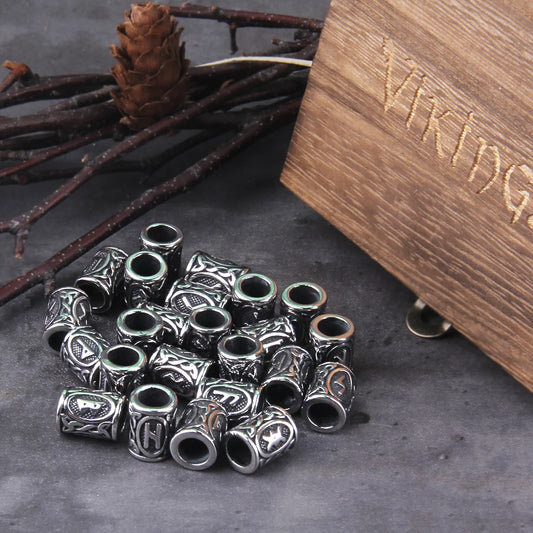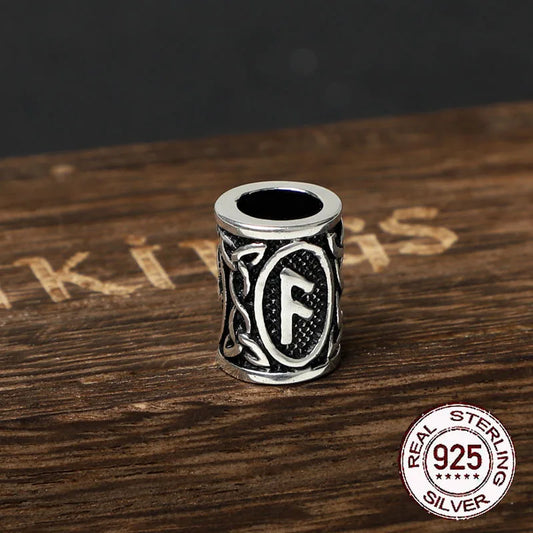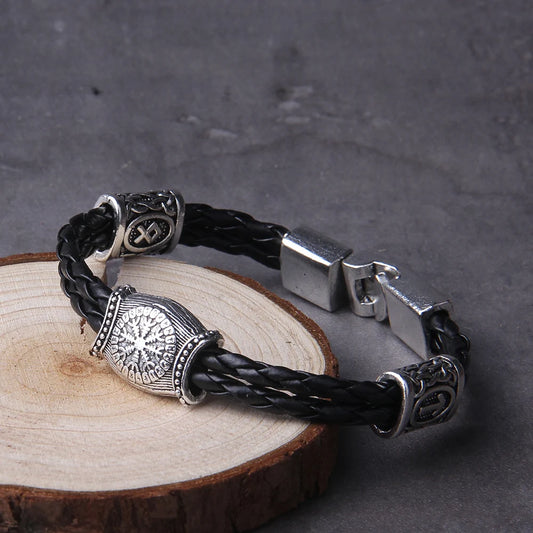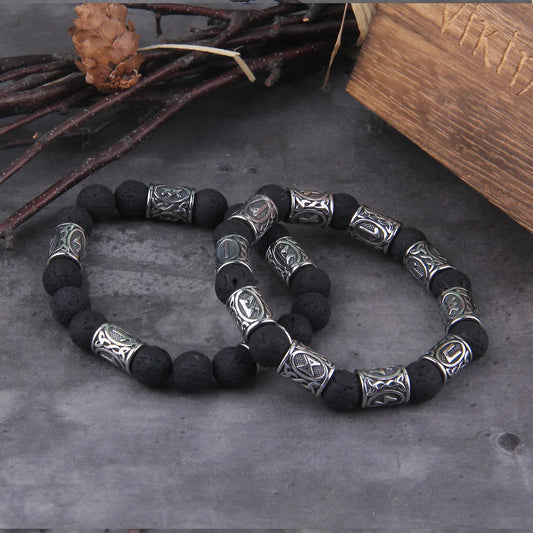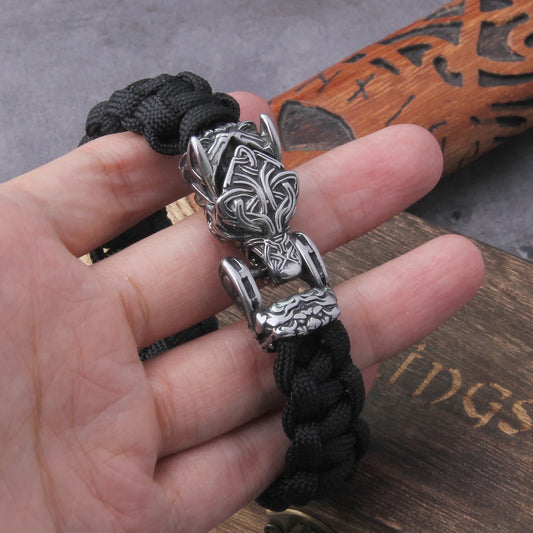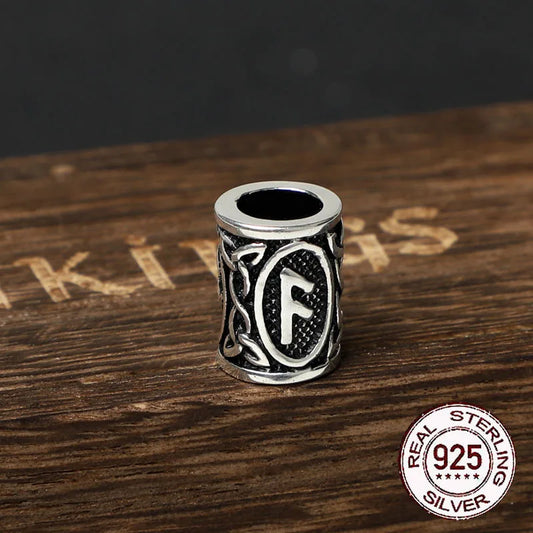In Norse mythology, the Bifröst (also Bilröst) is a fiery rainbow bridge linking Midgard (the world of men) and Asgard (the realm of the gods).
The bridge is mentioned as Bilröst in the poetic Edda, as Bifröst in Snorri Sturluson's prosaic Edda and in various poems of the scaldic poetry. Both Eddas also refer to the bridge as Asbrú (Old Norse "the bridge of the Aesir").
According to the prosaic Edda, the bridge ends at the celestial vault where the god Heimdall, the watcher, has his residence called Himinbjörg. From there he watches over the giants.
The destruction of the bridge during Ragnarök by the armies of Muspellheim is prophesied. There are parallels between Bifröst and another bridge present in Norse mythology, Gjallarbrú.
Etymology of Bifrost
Andy Orchard translates Bifröst as possibly "bright path." He notes that the first term Bilröst-bil ("a moment")-"suggests the ephemeral nature of the rainbow," and relates it to the first term of Bifröst-the Old Norse verb bifa meaning "to shine" or "to shake"-noting that the element elicits a concept of a "bright and shining" bridge.
Rudolf Simek, for his part, states that Bifröst could mean "the swinging way to heaven" (also citing bifa) or, if Bilröst is the original form than the two mentioned by Simek, "the fleetingly glimpsed rainbow" (see bil, perhaps meaning "instant, faint spot").
Bifrost in the Poetic Edda
In the poetic Edda the bridge is mentioned in the poems Grímnismál and Fáfnismál, where they are called Bilröst. In one of the two stanzas of Grímnismál, Grímnir (actually Odin in disguise) brings cosmological knowledge to a young Agnarr, mentioning that Bilröst is the greatest of bridges.
In Grímnismál, Grímnir says that Asbrú "burns with flames" and that, daily, the god Thor wades between the waters of Körmt and Örmt and the two rivers of Kerlaugar.
In Fáfnismál, a dying Fafnir tells the hero Sigurd that during Ragnarok, the gods will carry spears and gather at Óskópnir.
From there, the gods will cross Bilröst, which will split as they go and cause their horses to fall into a huge river.
Bifrost in the Prose Edda
The bridge appears in the books Gylfaginning and Skáldskaparmál, where it is called Bifröst. In Gylfaginning (ch. 13), Gangleri (King Gylfi in disguise) asks Hár what roads exist between heaven and earth.
Hár laughs because he considers it not a very intelligent question and explains that the gods built a bridge and incredulously asks Gangleri how he had not heard this story before.
Hár tells Gangleri that he must have seen it and can call it a rainbow. Hár says that the bridge has three colors, is very sturdy, "and is built with art and craft in a way never seen before in other constructions."
Hár also mentions that, although the bridge is strong, it will break during the journey to Muspelheim when they attempt to cross it, and that the horses will have to swim across between the "great rivers."
Gangleri replies that it does not seem to him that the gods "built the bridge conscientiously since it may break, considering that they are capable of anything at will."
Hár replies that the gods do not deserve to be criticized for the breaking of the bridge since "there is nothing in this world that can assure when the sons of Muspell will attack."
In Gylfaginning (ch. 15), Jafnhár says that Bifröst is also called Asbrú, and that every day the gods ride their horses across it, with the exception of Thor, who wades between the waters of the rivers Körmt and Örmt to reach the Well of Urd, a holy place where the gods hold their court.
Gangleri asks if the fire burns on. Hár says that the red color is the burning fire and that without that fire the jotuns would "reach the sky" as anyone could cross it. Hár adds that, in heaven, "there are many beautiful places" and that "everything in that place has divine protection".
In another chapter (ch. 17), Hár mentions to Gangleri the location of Himinbjörg "remains on the borders where Bifrost joins the sky".
He also says that the god Heimdal (ch. 27) lives in Himinbjörg, and guards the mountain bridge of Jotnar while sitting still.
As a reference, Jafnhár extols the second of the two stanzas of Grímnismál where he cites the bridge, and predicts the events of Ragnarök: the heavens will open and from there the horsemen "sons of Muspell" will depart, breaking Bifröst as they pass, "as has been said before."
In Skáldskaparmál, the bridge is only mentioned in chapter 16 where the scaldo Úlfr Uggason refers to Bifröst as "the way of the powers".
Theories about the Bifrost Bridge
In his translation of the prosaic Edda, Henry Adams Bellows comments that the stanza of Grímnismál where he mentions Thor and the bridge, means that "Thor must go on foot in the last days of destruction, when the bridge burns".
Another interpretation, however, is that "when Thor leaves the sky (at the end of the storm) the hot rainbow appears under the sun."
John Lindow highlights the parallel between Bifröst, "a bridge between earth and heaven, or earth and the world of the gods," and the Gjallarbrú bridge, "a bridge between earth and the underworld, or earth and the world of the dead."
Some scholars identify the Milky Way as Bifröst.

